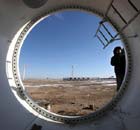Top Stories
MBA study can be a risky investment
By Shen Jingting (China Daily)
Updated: 2010-04-21 07:55
 |
Large Medium Small |
People thinking about investing their time and money on an MBA accreditation should carefully select the institution where they will study or they could end up out of pocket, say experts.
The advice follows the release of rankings by the Chinese edition of Forbes magazine on Monday.
The list is topped by China Europe International Business School (CEIBS), which the magazine says offers the best full-time MBA program. It was the third year in a row the school has topped the table.
The best institution offering a part-time MBA was said to be Guanghua School of Management at Peking University. The ranking was based on a survey conducted in 45 domestic B-schools and mainly drew upon the comments of students who graduated in 2005 and 2009 - people who have now been in the workplace for five years and one year, respectively.
The survey found MBA programs in various Chinese B-schools have varied greatly in the past few years, with some faring much better this time around and others doing markedly worse.
"In the mid- and long-term, investing in an MBA or EMBA education can achieve a good return, but only for those excellent programs," said Liu Ruiming, executive editor of the Chinese edition of Forbes.
Taking CEIBS as an example, students who completed the MBA program realized cumulative income growth over the five years that followed of 524,000 yuan.
The income growth rate was 116.7 percent when comparing salary before and immediately after their MBA.
On the contrary, graduates from relatively weak business schools saw no obvious rise on salary.
Five years after graduation, some MBA holders had not even recouped the costs of their tuition and lost salary.
"While many other international business schools use part-time 'fly-in' professors, our full-time faculty is based in China and they conduct research and write case studies on China," Rolf D Cremer, CEIBS's dean and vice-president, told METRO.
Cremer said the institution's students experience career advancement because CEIBS offers a business management education that is rooted in both the international and China market.
Wang Yuming, an MBA graduate from Tsinghua University, said that while the quality of a business school is important, the competency of MBA candidates also plays a vital role.
"I think MBA students should have some main criteria, such as an outgoing character, communication skills and leadership qualities," Wang said.
He said he knew of some MBA students who were unable to find a job two years after graduating from a B-school.
The survey measures indicators such as return on investment after five years. It also looks at the first-year starting salary for graduates and the income growth rate after graduating.
In respect of return on investment, it found B-schools paid back quite nicely in the long run. Overall, five years after full-time 2005 MBA graduates left school, they received an average income of 286,000 yuan per year, 3.4 times higher than what they had earned before the programs.
And most of the MBA graduates stepped into higher management positions. Before their MBA program, only 10.6 percent of 2005 graduates had high-level management positions but the figure rose to 17.7 percent one year later, and 34.6 percent four years later.
The survey also discovered MBA programs led to changes in personal careers. Among the full-time 2005 MBA graduates, more than half changed jobs. The financial industry attracted nearly one-fifth of the students.
Private enterprises absorbed more MBA talents than foreign companies, according to the survey. The percentage of 2005 graduates who worked for private enterprises was 31.5 percent, around 4 percent higher than the number going to foreign firms.
More females joined those applying for MBA programs in the latest survey.
Women accounted for 18.2 percent of graduates in 2005, while in 2009, the number had climbed to 31.5 percent.







